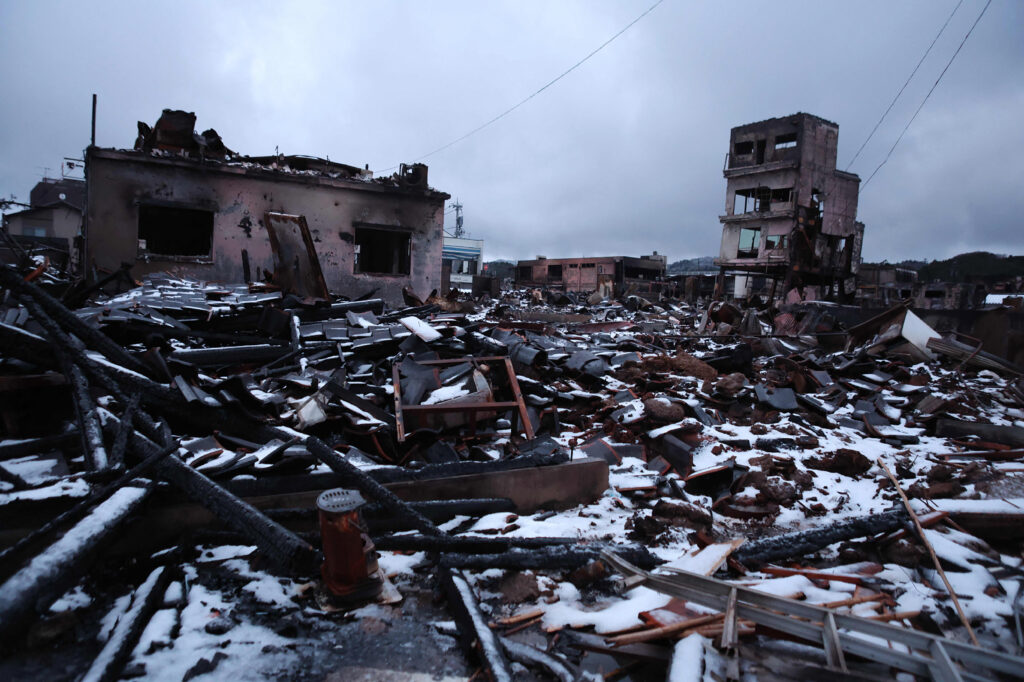
- ARAB NEWS
- 05 May 2024

Kanazawa: The death toll in Ishikawa Prefecture from the 7.6-magnitute earthquake that struck central Japan on Jan. 1 totaled 233 as of 2 p.m. Monday, the prefectural government said.
Of the figure, the number of people who died of indirect causes related to the disaster rose by one from Sunday to 15.
The overall fatalities included 99 in the city of Suzu, 98 in the city of Wajima, 20 in the town of Anamizu and eight in the town of Noto. The number of people still unaccounted for was unchanged at 22–18 in Wajima and four in Suzu.
Although aftershocks are gradually decreasing, seismic activity is still robust and caution is needed for earthquakes measuring upper 5, the fourth highest on the Japanese seismic intensity scale, or higher over the coming week, according to the Japan Meteorological Agency.
As some areas in Ishikawa are forecast to see heavy snow from late Tuesday night to around Thursday, the agency warned that houses may collapse due to snow accumulation.
With three weeks having passed since the quake in the Noto Peninsula, which measured up to the maximum level of 7 on the Japanese scale, Japan’s Chief Cabinet Secretary Yoshimasa Hayashi told a press conference in Tokyo on Monday, “We will continue providing relief supplies according to local needs and make every effort for sanitary control in affected areas and health management at evacuation facilities.”
The physical and mental fatigue of affected people is increasing due to prolonged evacuation, the top government spokesman said.
The government has secured medical institutions and elderly facilities, on top of inns and hotels, as secondary evacuation sites for those in need of special care, such as elderly people, he said.
Hayashi added that the government will support municipal authorities in afflicted areas to help ensure that the most appropriate secondary evacuation sites are selected for evacuees based on their wishes.
JIJI Press